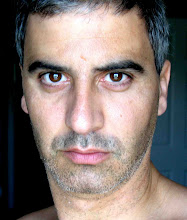En ese esfuerzo que todos hacemos por saber que blog sería el perfecto, el que todo el mundo quisiera participar, pensé en los dilemas morales. Muchas veces en largas caminatas o cuando tienes que pasar mucho tiempo con otras personas, una manera de llenar y hacer interesante ese momento es plantear dilemas morales.
He hecho un poco de google, y aqui hay varios:
Un dilema genera cierta duda entre lo que profesionalmente, o bien puede que moralmente debe actuar y lo que moralmente como persona sienta que deba actuar, mostrando así una discrepancia de pensamiento.
Regularmente un dilema moral se presenta como un caso o relato de alguna situación en especial. Dicha narración es breve, a modo de historia, en la que se plantea una situación posible en el ámbito de la realidad pero conflictiva a nivel moral, y se solicita de los oyentes o bien una solución razonada del conflicto o un análisis de la solución elegida por el sujeto protagonista de la historia. Por regla general la situación se presenta como una elección disyuntiva: el sujeto protagonista se encuentra ante una situación decisiva ante la cual sólo existen dos, y nada más que dos, opciones (A) ó (B), siendo ambas soluciones igualmente factibles y defendibles. El individuo se encuentra, pues, ante una verdadera e inevitable situación.
Algunos dilemas:
en inglés.
he following is a list of some moral dilemmas, mostly adapted from Moral Reasoning, by Victor Grassian (Prentice Hall, 1981, 1992), with a couple additions. The question to consider with all of these is why they are dilemmas. Some, however, may not seem to be dilemmas at all. Discussion of the dilemmas can be found at The Generalized Structure of Ethical Dilemmas.
The Overcrowded Lifeboat
In 1842, a ship struck an iceberg and more than 30 survivors were crowded into a lifeboat intended to hold 7. As a storm threatened, it became obvious that the lifeboat would have to be lightened if anyone were to survive. The captain reasoned that the right thing to do in this situation was to force some individuals to go over the side and drown. Such an action, he reasoned, was not unjust to those thrown overboard, for they would have drowned anyway. If he did nothing, however, he would be responsible for the deaths of those whom he could have saved. Some people opposed the captain's decision. They claimed that if nothing were done and everyone died as a result, no one would be responsible for these deaths. On the other hand, if the captain attempted to save some, he could do so only by killing others and their deaths would be his responsibility; this would be worse than doing nothing and letting all die. The captain rejected this reasoning. Since the only possibility for rescue required great efforts of rowing, the captain decided that the weakest would have to be sacrificed. In this situation it would be absurd, he thought, to decide by drawing lots who should be thrown overboard. As it turned out, after days of hard rowing, the survivors were rescued and the captain was tried for his action. If you had been on the jury, how would you have decided?
A Father's Agonizing Choice
You are an inmate in a concentration camp. A sadistic guard is about to hang your son who tried to escape and wants you to pull the chair from underneath him. He says that if you don't he will not only kill your son but some other innocent inmate as well. You don't have any doubt that he means what he says. What should you do?
Sophie's Choice, not in Grassian.
In the novel Sophie's Choice, by William Styron (Vintage Books, 1976 -- the 1982 movie starred Meryl Streep & Kevin Kline), a Polish woman, Sophie Zawistowska, is arrested by the Nazis and sent to the Auschwitz death camp. On arrival, she is "honored" for not being a Jew by being allowed a choice: One of her children will be spared the gas chamber if she chooses which one. In an agony of indecision, as both children are being taken away, she suddenly does choose. They can take her daughter, who is younger and smaller. Sophie hopes that her older and stronger son will be better able to survive, but she loses track of him and never does learn of his fate. Did she do the right thing? Years later, haunted by the guilt of having chosen between her children, Sophie commits suicide. Should she have felt guilty?
The Fat Man and the Impending Doom, with parts cut out in the 2nd edition; they seem to have gotten removed to avoid unintentionally humorous overtones.
A fat man leading a group of people out of a cave on a coast is stuck in the mouth of that cave. In a short time high tide will be upon them, and unless he is unstuck, they will all be drowned except the fat man, whose head is out of the cave. [But, fortunately, or unfortunately, someone has with him a stick of dynamite.] There seems no way to get the fat man loose without using [that] dynamite which will inevitably kill him; but if they do not use it everyone will drown. What should they do?
Since the fat man is said to be "leading" the group, he is responsible for their predicament and reasonably should volunteer to be blown up. The dilemma becomes more acute if we substitute a pregnant woman for the fat man. She would have been urged by the others to go first out of the cave.
20091129
Una página de dilemas
Publicado por
Miguel Angel Antoñanzas
en
22:12:00
0
comentarios
![]()
Suscribirse a:
Comentarios (Atom)


